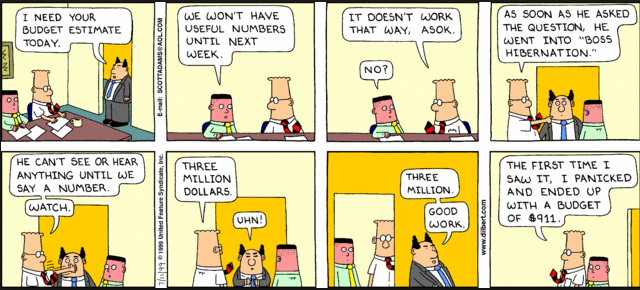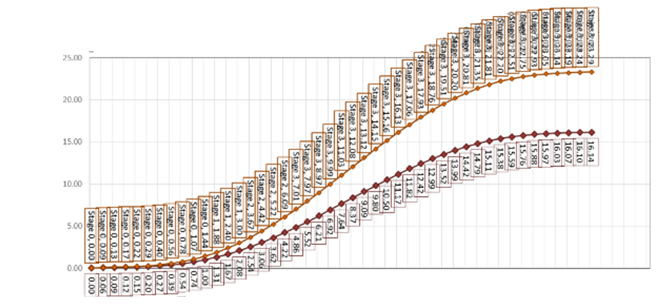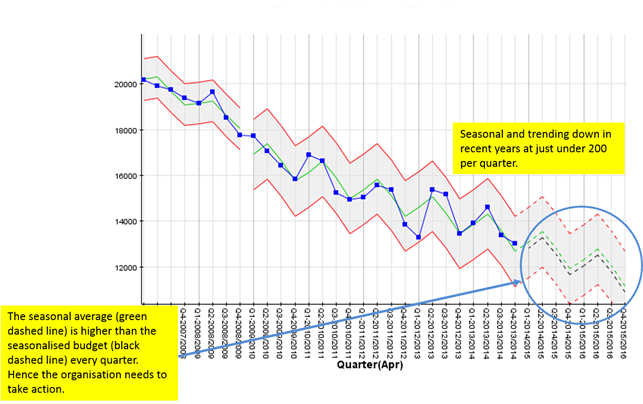Beyond Budgeting… A journey towards real customer service – Part 2 / 2
27/07/2017


Last week, we introduced the idea of Beyond Budgeting and how it chimes with our work with Cranfield on “A Systems Approach to Project Management”. It challenges the current standard practice of setting rigid budgets on an annual (or longer term) basis and then tracking variance from budget month by month.
This may seem scary for some finance types, but there are many advantages of adopting the approach promoted by the Beyond Budgeting Institute (www.bbrt.org). Some global organisations are adopting this approach and doing very well thank you – e.g. Handelsbanken, Maersk, Lego, E&Y and many others……
So, if not tracking results and their variance from budget on a monthly basis, what’s the alternative?
The answer is to first consider if monthly is the right timeframe – surely this should be determined by the nature of the business or the world-system at hand, and any contextual changes in the markets or communities they serve. For example, retail may require daily assessment, whereas ship-building might require monthly…
Second, can you get data about what peers are achieving, and then position your results against this group? In essence you’re creating a “reference class” of results which will give you an envelope centred around an average which you can then compare your results against. It might be projected spend over the next two years, with a “lazy S” profile. If the spend at each review period is not outside the envelope, don’t get excited!

Third, and along with this, you might want to use extended-SPC techniques to track whether the patterns and trends are “in the right direction”. Below, you might be tracking costs or spend which you may be wanting to bring down by approx. 15% over the next year. By looking at your previous actual costs/spend profile up until Q4 2013/14 (the envelope between the upper and lower red guidelines), you can project this forwards (dashed lines) and superimpose the seasonalised required budget reduction (dashed black line) and look at the likelihood of achieving the reduction going forwards.

By looking at the evidence (the data) in this way, organisations become energised around what action to take to move in the right direction going forwards, rather than looking backwards and trying to justify why some result differed from some arbitrary budget set some time in the distant past. It accepts that there is something called variation in the world, beyond the precise control of any one manager. Of course, until your seniors really understands real-world variation, they may well go into “boss hibernation” (or adopt the head-in-sand approach)!
Categories & Tags:
Leave a comment on this post:
You might also like…
Keren Tuv: My Cranfield experience studying Renewable Energy
Hello, my name is Keren, I am from London, UK, and I am studying Renewable Energy MSc. My journey to discovering Cranfield University began when I first decided to return to academia to pursue ...
3D Metal Manufacturing in space: A look into the future
David Rico Sierra, Research Fellow in Additive Manufacturing, was recently involved in an exciting project to manufacture parts using 3D printers in space. Here he reflects on his time working with Airbus in Toulouse… ...
A Legacy of Courage: From India to Britain, Three Generations Find Their Home
My story begins with my grandfather, who plucked up the courage to travel aboard at the age of 22 and start a new life in the UK. I don’t think he would have thought that ...
Cranfield to JLR: mastering mechatronics for a dream career
My name is Jerin Tom, and in 2023 I graduated from Cranfield with an MSc in Automotive Mechatronics. Originally from India, I've always been fascinated by the world of automobiles. Why Cranfield and the ...
Bringing the vision of advanced air mobility closer to reality
Experts at Cranfield University led by Professor Antonios Tsourdos, Head of the Autonomous and Cyber-Physical Systems Centre, are part of the Air Mobility Ecosystem Consortium (AMEC), which aims to demonstrate the commercial and operational ...
Using grey literature in your research: A short guide
As you research and write your thesis, you might come across, or be looking for, ‘grey literature’. This is quite simply material that is either unpublished, or published but not in a commercial form. Types ...






